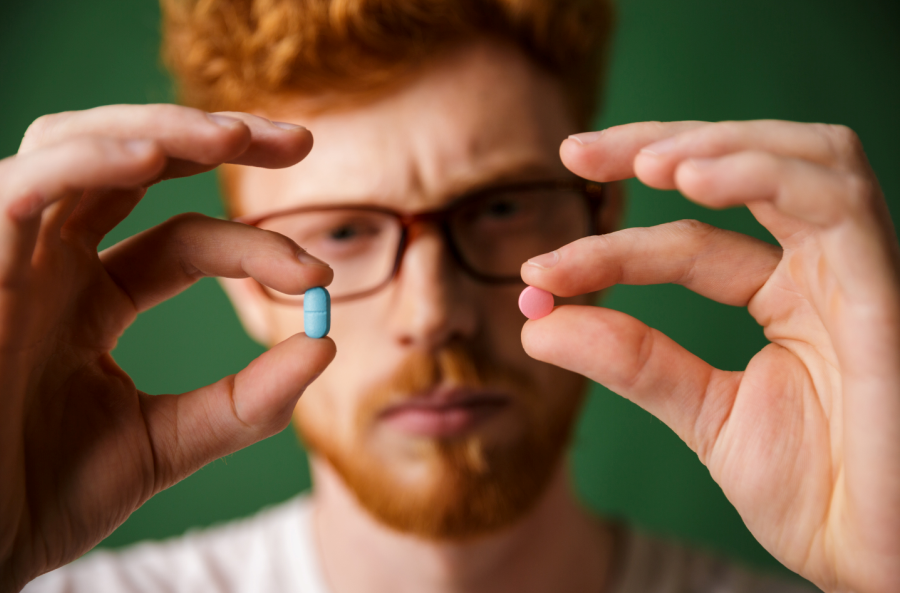
It’s only natural that in these fast-paced times, many people turn to dietary supplements to compensate for certain nutrients. We all know how difficult it can be to maintain a balanced diet while juggling all the things life throws at us. Furthermore, people who have specific dietary requirements due to a medical condition or dietary choice (e.g., vegans) need to augment their nutrient intake via supplements.
However, while supplements can be healthy for you, they can be bad for the environment. The list of transgressions against Mother Nature that can be attributed to supplements goes from using unsustainable ingredients to depleting the oceans of fish.
Let’s dig a bit deeper into the impact of supplements on the environment, and also see how things are changing and where the role of the individual lies.
Where did all the fish go?
According to the Food and Agriculture Organization, more than 20 percent of fish caught went to non-food use in 2016. So, for what purpose are people using this fish? Well, most likely for producing Omega-3 supplements. These are often used to boost brain health, decrease the risk of heart disease, improve metabolism, fight inflammation, and so on.
Overfishing hurts biodiversity. It is estimated that approximately 90 percent of the larger fish that used to inhabit our oceans are now gone, and some sources have stated that there is “barely any” cod left in the Atlantic ocean. All of this leads to algae overgrowth, which consequently creates dissolved organic carbon that damages coral reefs.
Unsustainable agriculture practices
We all know that global food production is often seen as a threat to the environment. Some ingredients that are used to make the supplements come from farming and some manufacturers don’t pay much attention to sustainability when acquiring them. Pesticides and fertilizers impact air quality and can lead to soil degradation. Also, to make space for cultivating the plants and herbs, some manufacturers are cutting down forests. These actions combined can contribute greatly to climate change.
While these facts give supplements a bad rap, the truth is, like with most other things, that there are other, better ways to be a conscious consumer.
Make your supplements from scratch
“If you want something done properly, do it yourself” – the same goes for making supplements. By carefully selecting the ingredients, you will not only be sure that they come from sustainable agriculture and fishing, but also that all the nutrients fit your dietary requirements.
While it may seem complicated, making your own capsules is easy with the right capsule filler and a bit of research. You can choose the size of the capsules, choose the ingredients (some of the most popular options are wheatgrass, bee pollen, and elderberries), and mix herbs in their raw form.

Find alternative sources for debatable ingredients
Omega-3 fatty acids are at the top of the list of supplement ingredients that can harm the environment. While there’s no denying that they are great for your health, it would be best to find other ways of consuming them.
For example, you can get them from any kind of beans, cashews, walnuts, and macadamia nuts. There is also evidence that a sufficient amount of Omega-3s can be obtained from algae, so edible products and supplements made of algae can become more popular in the future – especially for vegans.
Look for organic certification
The supplement market offers various organic options, but how can you know who to trust? Well, we’ve got you covered for this part: check for organic certification and see whether the product complies with the updated (2018) version of the Organic Trade Association’s Guidance on organic dietary supplements.
The American Herbal Product Association can also keep you updated on the market trends and the latest research. Do further research of the manufacturers by checking out some of the following criteria:
- Committed to sourcing from farms focusing on soil regeneration
- Everything is made in-house
- Recyclable packaging
- They use the byproducts of the fishing industry (the fish is not specifically caught for the supplement)
Shop in your neighborhood
As with everything we buy, the cost of transportation weighs heavily on the environment. Even if you purchase something in your local store and that product is manufactured in some distant country, you’re creating demand for an item that is continuously transported (most likely by airplane) to your country. This is why you need to check if there is some local supplement manufacturer you can support and which, of course, complies with the rules mentioned in the previous paragraph.
Final word
There is no doubt that supplements can be beneficial for your health, and sometimes even necessary. However, we have to be aware that the supplement industry may leave grave consequences on our planet. By taking this aspect into regard when purchasing (or making) your dietary additions, you will contribute to a greener planet with a brighter future.
You may also like
10 Best Sites to Buy Protein Supplements Online
The 15 Best Sites to Buy Nutritional Supplements Online
Amazing Things Proper Nutrition Does to Your Body
